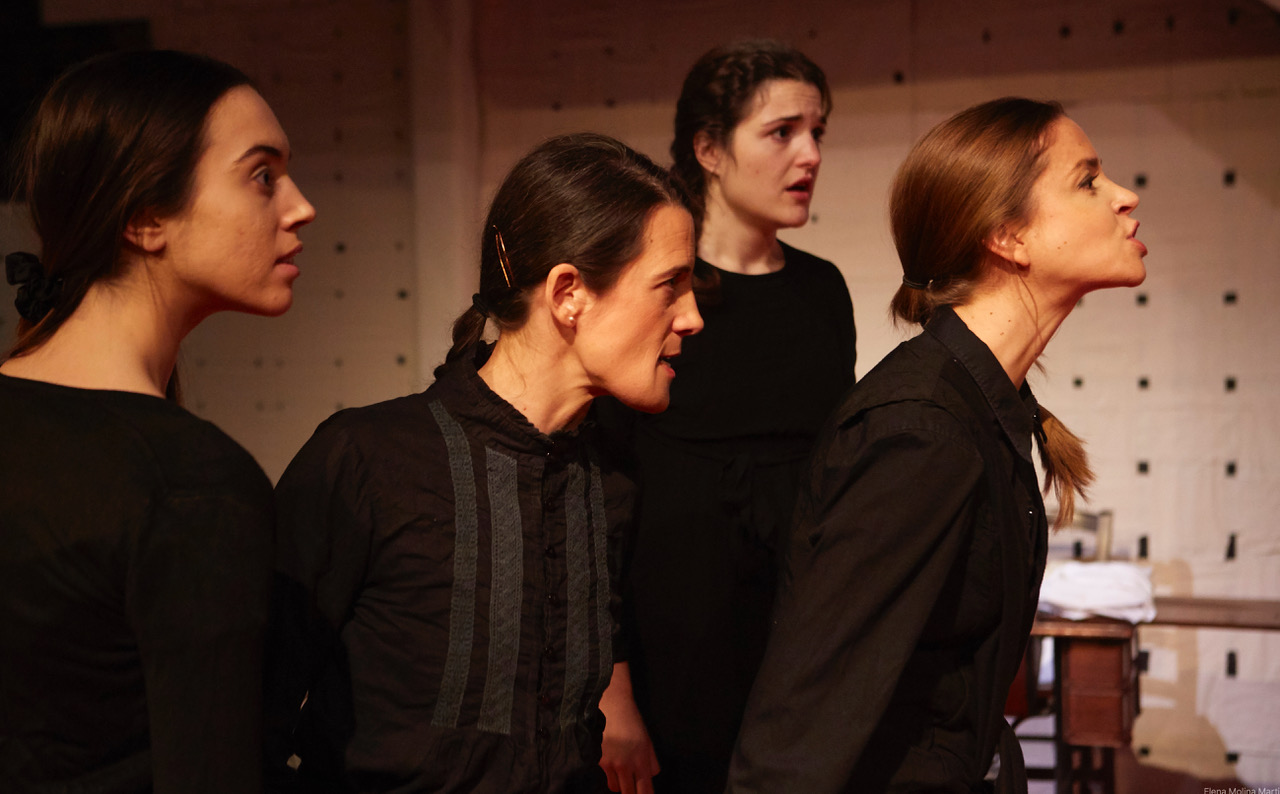In 1936, at only 38 years of age, Federico García Lorca died very young, executed by the Falangists who were determined to eliminate left-wingers, liberals and intellectuals from Spanish society. Born Federico del Sagrado Corazón de Jesús García Lorca in 1898, he soon became well known for his dazzling poetry, plays and as a theatre director. He was, however, an all-round artist being a precocious student of music from a young age and popular with all his friends playing and singing with the guitar. He was fascinated by Spanish folklore, not merely Flamenco, but all forms of musical expression, including lullabies and songs of all kinds. This deep sense of rhythm remained with him always and is apparent in his poetry and his plays.
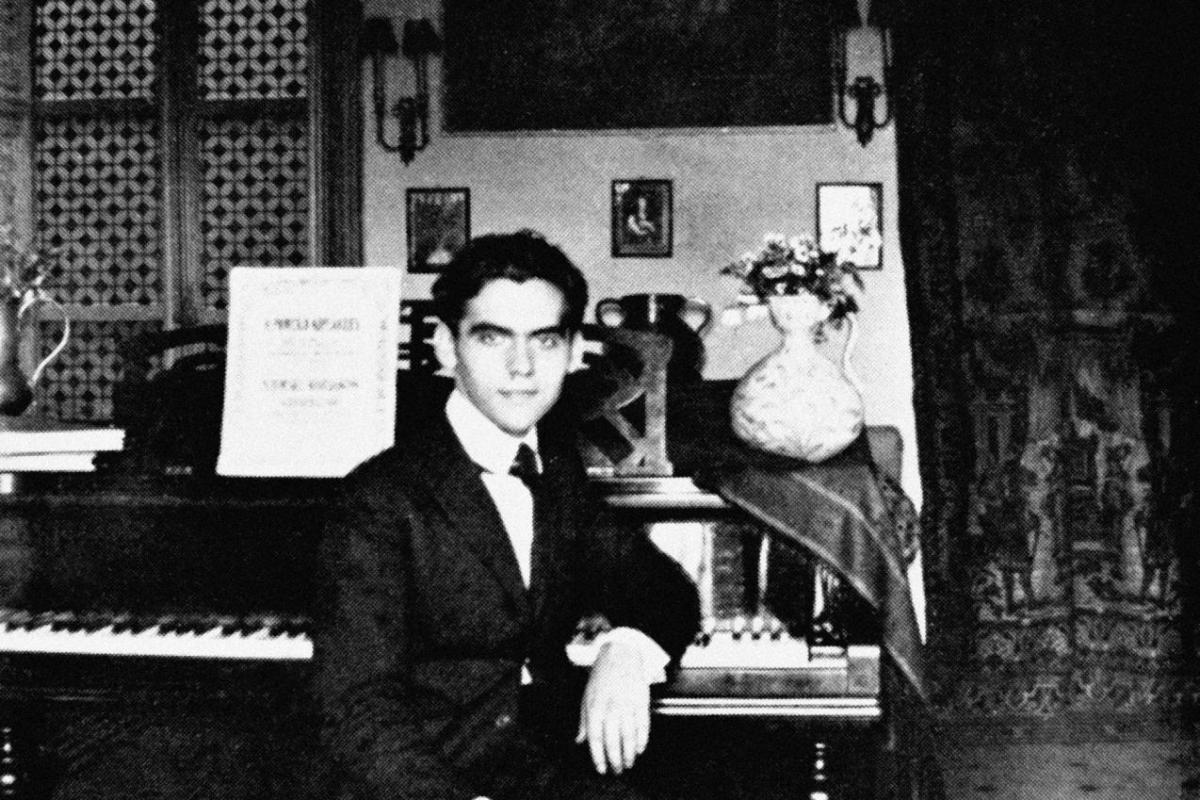
Federico García Lorca in 1919 at 20 years of age.
He was an important member of the ‘Generation of ‘27’, a group of poets who introduced such elements into Spanish literature as Surrealism, Futurism and Symbolism. These included Rafael Alberti, Jorge Guillén and Vicente Aleixandre, as well as avant-garde artists like Salvador Dali and Luis Buñuel.
They were significant in that they were the last generation of authors before the outbreak of the Spanish Civil war that was to wipe out almost all the cultural and literary life of the country, to be almost finished off by the dictatorship. Lorca was assassinated, others, like Miguel Hernández, were imprisoned and many others fled into exile.
Lorca was born in the countryside, in Fuente Vaqueros, a small town near Granada in Andalucía. His father was a prosperous landowner and pianist, while his mother was a teacher. Despite his family moving to Granada when he was 11, his roots remained deeply embedded in the lore and traditions of the countryside with its link to the natural world, (See Romancero Gitano(1928). He never lost his instinctive understanding of the deeper and darker side of the repressive nature of life in small towns. Being politically aware, he also used these elements as powerful metaphors for life in Catholic and later fascist Spain.
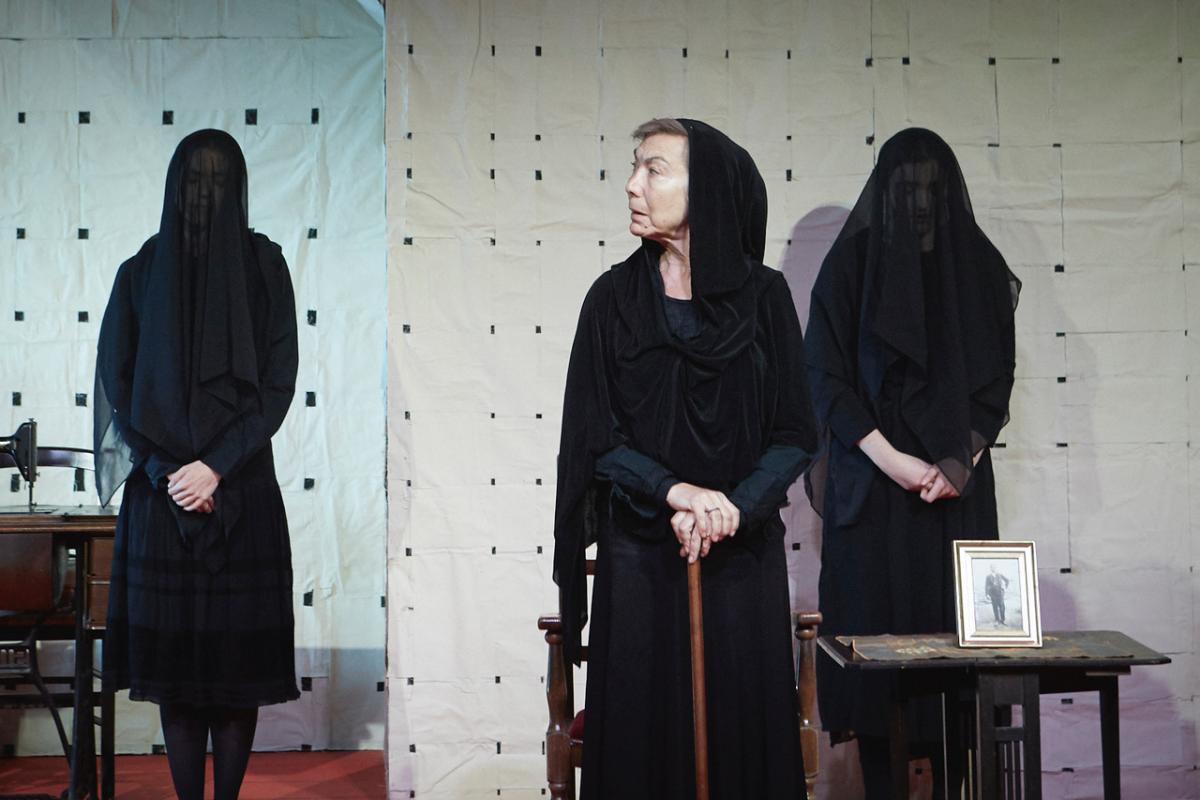
Teresa del Olmo and daughters after the funeral of her husband.
With ‘Romancero Gitano’ Lorca received critical acclaim. After spending some time in New York, where he recognized connections between Cante Jondo (Deep Song) and African American spirituals, he returned to Spain to found a travelling theatre called LA BARRACA, that was to perform his plays including Blood Wedding (1933).
Despite the growing repression from the fascist movement in Spain, Lorca adamantly refused to hide his leftist political ideals, or his homosexuality. Possibly, as a result of this, he became a ‘target’ and was arrested at his country home at the outset of the civil war in 1936, by soldiers of Francisco Franco and executed a few days later. The quality of his work had improved with every play and the last work he was to write and complete, only two months before being assassinated, was ‘The House of Bernarda Alba’, arguably the best play he ever wrote.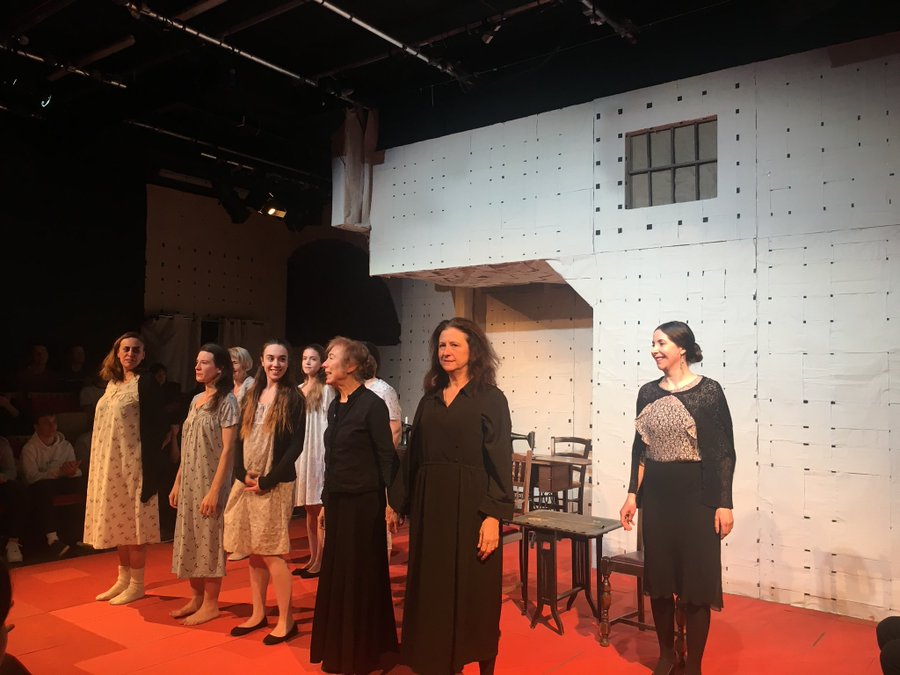
The astonishingly high quality of this final work can only make us all lament his demise even more. This is a beautifully crafted work, it explores themes of the damaging emotional violence of oppression, set in a household of repressed women who hunger to live, but are unable to do so. The sexual tension is palpable. There are no men on stage, they exist only in the ‘outside world’ to which these women have no real access, yet they come to the window at all hours, taunting the girls holed up in their ‘prison’, all the while controlled by the iron fist of Bernarda Alba herself. Bernarda Alba is a complex character, who believes she is doing the best for her daughters, even as it is also destroying her humanity.
Paula Paz Arjona, a former ballet dancer is also a producer and director at the Cervantes Theatre. With Jorge de Juan and other associates, she is a co- founder of the Cervantes Theatre and the Spanish Theatre Company: -

Paula Paz:
“This is the third time that we have produced The House of Bernarda Alba. The first version was back in 2017 and we had a second one in 2018. Last year we performed it at the Channing School’s Arundel Centre, which has a larger theatre. Now, it will be on at the Cervantes Theatre for one month before we take it on tour in March to Leeds, Birmingham, Bristol and other cities in the UK. This play is on the curriculum for A- Level Spanish every year, so there is a huge demand and as you can see there are many students who come to see it, apart from the usual public, and they are full of enthusiasm! This is the first time that we have opened a play and the whole season is sold within the first few days!”
The actress currently playing Bernarda Alba is Teresa del Olmo. Last year the role was played by Amparo Climent, and it is fascinating to observe the different interpretations of these two excellent actresses: -
Paula Paz: -
“Amparo Climent has a posture of elegance and a more subtle manipulation, while Teresa del Olmo has a particular type of strength, like a claw, a penetrating gaze that goes straight through walls, [she can hear your thoughts] and I like her performance very much. Teresa worked with us on the production staged at the Arundel Centre at Channing School and we are delighted that she is with us.”
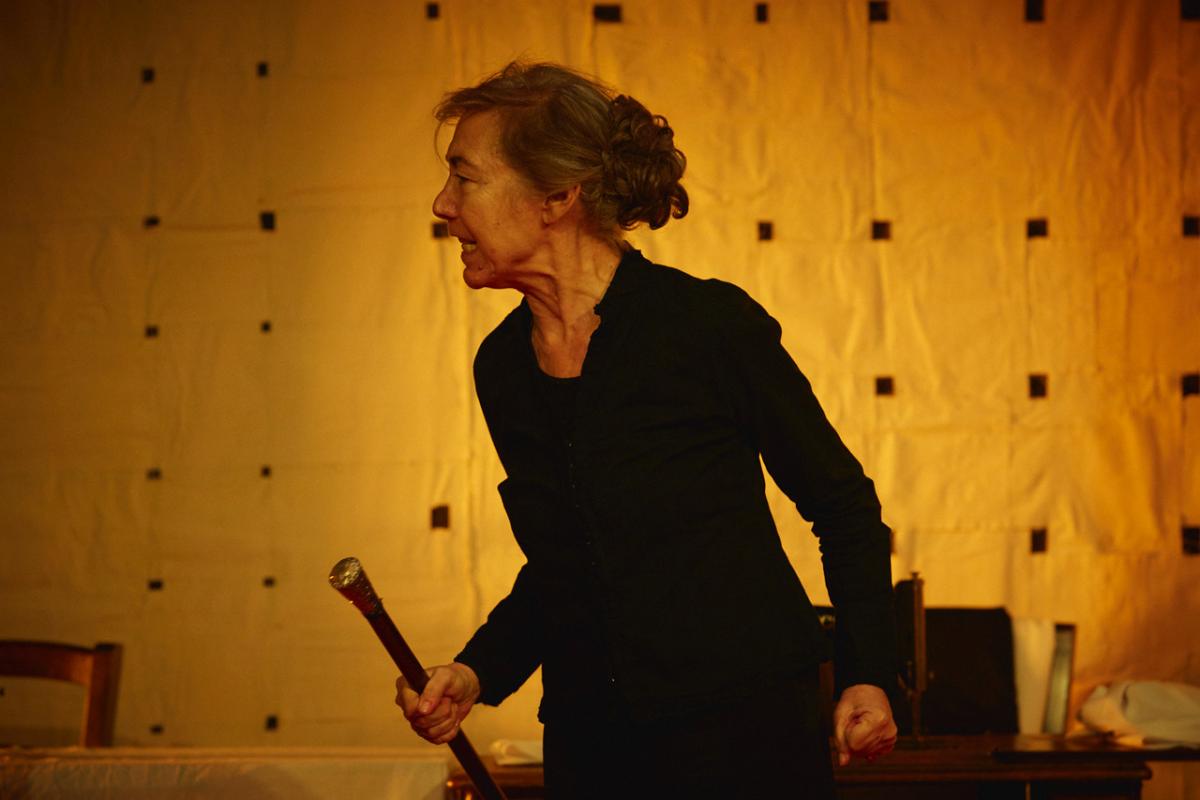
Teresa del Olmo as Bernarda
Despite the high quality of this play, it was banned in Spain and it’s very first performance was not until 1945, in Buenos Aires. It remained banned in Spain, largely because of the political implications and also because the language and the behaviour of the characters was considered to be shockingly immoral in the fascist and Catholic country. In 1950, a small theatre club was allowed to stage a single performance, but the Franco regime controlled the publicity, (or rather the lack of it!). Finally, in 1978 it was given the green light but only for individuals older than 14 years of age!
In this current production at the Cervantes Theatre, immaculately directed by Jorge de Juan, there have not been many planned changes other than to the cast. The set continues to be the effective prison atmosphere, created by the set designer Ángel Haro, as well as the disturbing use of sound effects and Mongolian throat singing that really pick up the distress of the characters and hits you in the solar plexus.
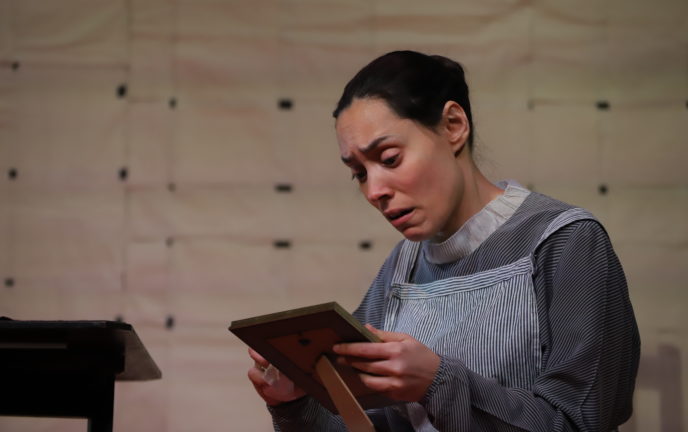
Laura Arnaiz as the maid.
All the performers shone in their roles, which included the convincing theatrical debut of Marina García, in the role of Adela. Marta Fochs replayed her role as Angustias with relish and one of the most entertaining characters, who provides some moments of light relief, Poncia, was charmingly played by Maite Jimenez. This was also the case with the character of Maria Josefa, (Judith Arkwright) the eccentric ‘mother’ of Bernarda, who constantly tries to break free, either by fleeing in the night or taking refuge in her fantasies. The interpretation of Martirio by Elena Sáenz stands out. She is a powerful presence on stage and this and other small changes in the cast, as they explore other avenues of expression, are constantly enriching the depth of this wonderful piece of writing by García Lorca.

Jorge de Juan: Director
This particular production of The House of Bernarda Alba is only being presented in Spanish, unlike previous ones that also had an English version.
Not to be missed!
Photographs by Elena Molina
‘The House of Bernarda Alba’, by Federico García Lorca. Feb 3rd - Feb 29th 2020
Cervantes Theatre, Southwark
Director Jorge de Juan
Cast:
Teresa del Olmo Bernarda
Maite Jiménez Poncia
Maria Garía Adela
Candela Gómez Magdalena
Elena Sáenz Martirio
Carolina Herrán Prudencia
Maria Josefa Judith Arkwright
Laura Arnaiz The Maid
Adela Leiro Amélia
Marta Fochs Angustias


